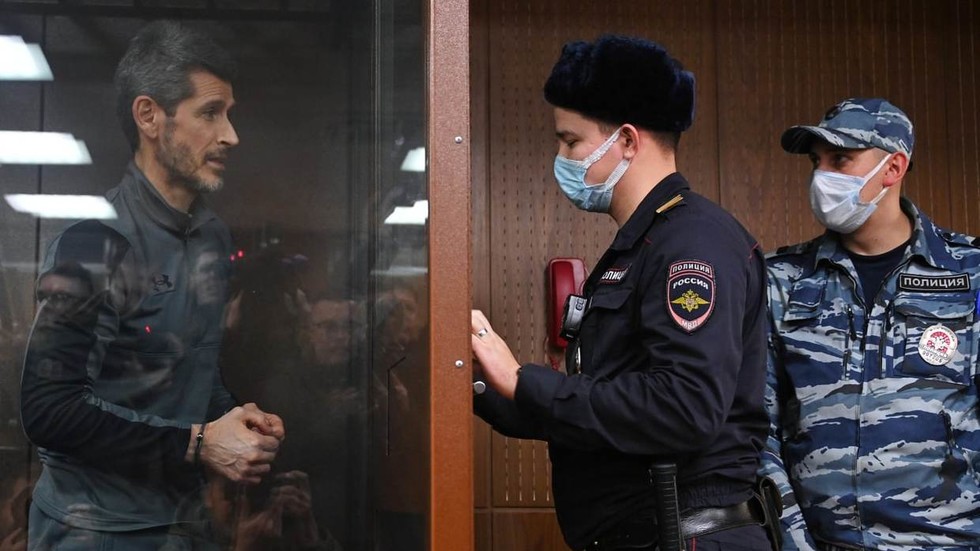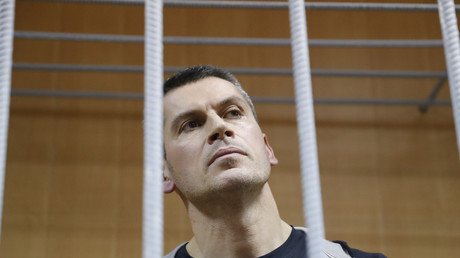
Judges said the Magomedov brothers embezzled billions through construction projects

Ziyavudin Magomedov awaits the verdict in embezzlement trial in Moscow, 25 November 2022 © Yevgeny Odinokov/RIA Novosti
A Moscow court on Thursday sentenced a controversial businessman, his ex-senator brother, and several other executives to lengthy prison sentences over a criminal conspiracy to embezzle billions of rubles from the government budget. One of the flagship projects the conspirators were involved in was a stadium in Kaliningrad for the 2018 World Cup.
Ziyavudin Magomedov, 54, was sentenced to 19 years in a maximum-security penal colony. The founder of Summa holding was also stripped of two government service medals, and will face two more years of probation upon eventual release.
His brother Magomed, 55, former member of the Federation Council, will serve 18 years in a penal colony and face 30 months of probation on top. Both Magomedovs also have to pay a fine of 2.5 million rubles ($40,800) each.
The Magomedovs were charged with leading a criminal conspiracy involving a total of 20 business executives, which cost the Russian state 11 billion rubles ($179 million) between 2010 and 2016.
Among the nine instances of embezzlement involved were construction projects in St. Petersburg and Kaliningrad, including the Baltika stadium built for the World Cup hosted in Russia four years ago.

Read more
Four other executives were sentenced to prison terms ranging from seven to 12 years behind bars and fines from 700,000 rubles to 1.5 million. The judges also ruled in favor of civil claims pressed by three defrauded plaintiffs, for the amount of 3.5 billion rubles in damages. Another claim for 5.8 billion was forwarded to the civil courts.
Ziyavudin Magomedov has denied all allegations, calling the case against him “a symbiosis of lies and absurdity.”
The Russian government has already seized some $750 million the Magomedovs received from selling the commercial sea port in Novorossiysk to Transneft, saying the brothers could not document that they received the profits legally. A Moscow court rejected their appeal in October.




